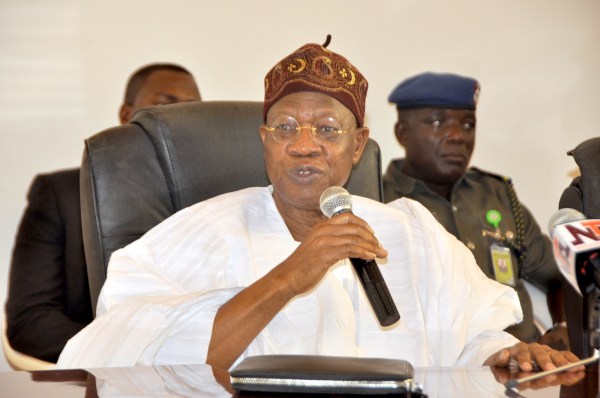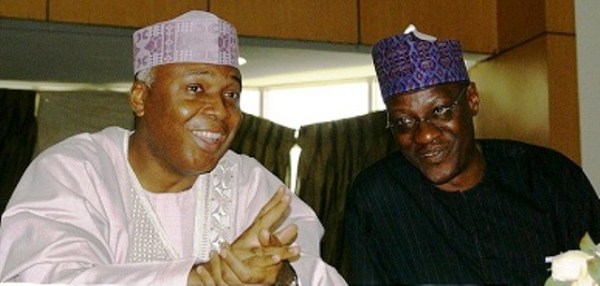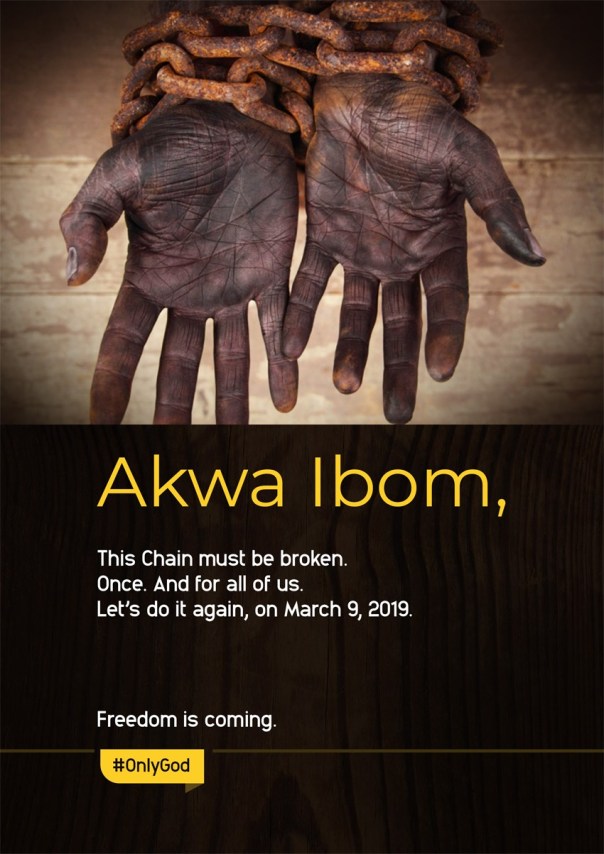On Saturday, Senate President Bukola Saraki lost in his bid to return to the Senate.
In the National Assembly elections held in Kwara Central Senatorial District, Mr Saraki, who contested on the platform of the Peoples Democratic Party (PDP), lost to Ibrahim Oloriegbe of the All Progressives Congress (APC).
The returning officer, Olawole Obiyemi, a professor of human kinetics education at the University of Ilorin, said Mr Saraki polled 68,994 votes while Mr Oloriegbe poled 123, 808 votes.
Mr Oloriegbe was thereafter declared the senator-elect in Kwara Central Senatorial District.
Aside from losing his bid, the Senate president lost all four of the local governments in his senatorial district and could not deliver his local government and state to PDP presidential candidate, Atiku Abubakar.
Tsunami
Similarly, Mr Saraki’s numerous allies and anointed candidates lost in all of the seats contested in the state as the APC won all three senatorial positions and all of the House of Representatives seats across the state.
Analysts opine that the development puts an end to Mr Saraki’s hegemonic influence in Kwara politics, which began effectively in 2011 after he displaced his late father, Olusola Saraki.
PREMIUM TIMES observes that a number of factors helped the opposition displace the Senate President and his party, the PDP, in the state. This newspaper hereby highlights the factors that triggered his fall in Kwara politics.
1. Unpaid Salaries
By far the most potent weapon the opposition used against the Senate president and his party was the issue of unpaid salaries. People affected include teachers, local government officials and pensioners, among others.
The Kwara State Government has for long had protracted battles with workers in the state over unpaid salaries.
There have been a series of protests in the past over the issue.
In 2017, an advocacy group, Kwara Must Change, claimed that the rate of suicides among Kwara civil servant was high because of unpaid salary arrears.
Last September, teachers In the state threatened to embark on strike over welfare issues.
While Mr Saraki is not the current state governor, having served in that position between 2003 and 2011, residents of the state hardly separate the Abdulfatah Ahmed-led state government’s performance from the Senate president.
In effect, he is widely seen as immensely influential in the decision-making process of the Kwara government. Due to the harsh economic conditions thrown up by the unpaid salary controversies, it was all but easy for the opposition to ride on this wave and convince affected people to vote out the PDP.
2. Kwara South opposition/Oke-Ero bye-election
Offa, a major town in Kwara South, is considered the home of opposition in Kwara politics. From the second republic through the third and the current dispensation, the town is known for standing shoulder high against the Saraki dynasty.
Politicians from the town, notably Sunday Olawoyin, a leading disciple of the late Obafemi Awolowo, were known to have stood in the “progressive” camp, standing as the nemesis of the Saraki establishment.
The struggle that resulted in Mr Saraki’s fall on Saturday is said to have its root in Offa and other parts of Kwara South, beginning with the Ekiti/Irepodun/Isin/Oke-Ero Federal constituency bye-election which the APC won in 2018. But shortly before the bye-election, the anti-Saraki sentiment in the town was however intensified by the Offa robbery debacle of April 2018.
3. Offa Robbery Debacle
In April 2018, police officers, residents and bank customers were murdered in a robbery operation that lasted for over an hour in Offa, Kwara State.
The robbers blew up entrances into the banks with dynamite, before carting away money from about five banks, then killing scores of people.
By June, suspects arrested by the police allegedly implicated Mr Saraki in their confessional statements, Jimoh Moshood, Force Public Relations Officer, said.
A slew of controversial developments, including evidence presented by police, would later raise public concern about Mr Saraki and the Kwara State Governor’s involvement in the debacle.
Offa, Omu-Aran, Erin-Ile and other adjoining communities have for years been at the mercy of bank robbers, especially during Yuletide periods. Although the Senate president denied all allegations, it did little to address the negative opinion formed against him by the people, which the opposition latched on.
A resident told PREMIUM TIMES on the eve of the election that, based on the developments, the people are not convinced the Senate president (and Kwara State Government) had no connection with the suspects.
4. Defection to PDP
In July, Senate President Bukola Saraki defected to the PDP, alongside Kwara Governor Abdulfatah Ahmed. Mr Ahmed, like Mr Saraki, said he defected “having realised that the All Progressive Congress (APC) can longer serve as a platform for achieving the aspirations and expectations” of his people.
Mr Saraki joined the APC on January 29, 2014, after falling out with the then PDP government, led by President Goodluck Jonathan. Shortly after his defection, a huge number of PDP chieftains in the state defected into the APC en masse.
Mr Saraki’s defection to PDP, analysts said, made him vulnerable in the hands of the opposition APC, which controlled the government at the centre.
5. ‘Federal Might’
In all of the Saraki dynasty’s electoral battles since 2003, it never worked against the government at the centre, except in 2015. In 2003, the late Olusola Saraki supported his son, Bukola, on the platform of the then ruling PDP. The younger Saraki sought re-election in 2007 and installed his candidate, Mr Ahmed, in 2011––on the platform of same ruling party.
In 2015, although Mr Saraki’s political camp worked against the Jonathan-led PDP government, it was widely believed that the people also embraced the APC.
In last Saturday’s election, the absence of federal support exposed the weaknesses of the Saraki camp, especially in Asa Local Government and other places rumoured to be its “rigging stronghold”, which the opposition exploited.
6. ‘ Ilorin’s allied forces’
For decades, one of the reasons why anti-Saraki dynasty electoral battles in Kwara State have always been lost is that they were most often championed by people outside of Ilorin, the state capital. From John Dara through Lai Mohammed to Simeon Ajibola, people outside of Ilorin rarely pull the crowd for reasons analysts opine may be cultural and ethno-religious solidarity.

In the last election, however, many of those considered the backbone of the Saraki winning machinery in the heart of Ilorin were recruited into what the APC called the “struggle to liberate Kwara”.
With Lai Mohammed and APC governorship aspirant, Abdulrazaq Abdulrahman leading the pack, Saraki’s ex-loyalists including Ibrahim Oloriegbe, Yinka Aluko, Moshood Mustapha, Cook Olododo and others like Yahaya Seriki, Abdulyekeen Alajagusi were on the ground in the emirate city to deliver for APC.
7. Religious propaganda
Although its use always raises questions, propaganda plays a key role in elections in Nigeria.
In Kwara, one tactic used against the Senate president was to question his Islamic faith. “People think he is not a Muslim but only deceives Ilorin with that identity. Some of our people now call him ‘Gideon’,” a voter who declined to have his name in print told PREMIUM TIMES in Post Office area of the city days before the election.
Ilorin is a deeply religious society and some of the people connected with it and spread the claim, without confirming its veracity.
On the other hand, the APC also appealed to the Christian population, using its “O to ge” mantra. Shortly after the election was postponed, Kayode Alabi, APC deputy governorship candidate visited churches in Ilorin to canvass for support wherein he recited Bible verses containing the “o to ge” mantra.
There are also allegations of being “arrogant”, “aloof” and other character flaws levelled against the Senate president which the opposition amplified.
8 Kwara North revolt
Kwara north is generally considered to be the most underdeveloped part of Kwara State. Besides, the region considers itself the most ‘politically marginalised’ part of the state in its struggle to produce the state governor.
In the buildup to the election, youth in the region were reported to be violent toward the Saraki dynasty. In Kaiama, Ilesa-Baruba and other parts of Kwara North, random videos showed how the people rejected the PDP in its campaign across communities in the district.
Troubled by the rejection the party witnessed across the region, reports said Mr Saraki promised to zone the governorship position to the region in 2023.
The moves, however, did little to sway voters’ decision as results from the region showed that the people embraced the APC and rejected the PDP.
The party swept all legislative seats with wide margin and residents voted massively for APC presidential candidate, Muhammadu Buhari.
9. Influence of local media
When the history of the fall of Mr Saraki and the PDP in the state is documented, local media especially those owned by opposition politicians would get a mention.
Abu Abdullahi, a member of the APC in the state, told PREMIUM TIMES that affairs of the state have largely been kept in secrecy for years until the opposition had alternative media to air their grievances.
“They (PDP/Saraki) controlled state-owned media houses in the past and people had no access to information that affect them,” Mr Abdullahi said in Yoruba. He added, however, that with the emergence of independent radio stations, the people were informed about “the various excesses of the PDP government,” unlike in the past.
PREMIUM TIMES observed that in Ilorin, Sobi FM remains one popular private radio station considered the people’s favourite, especially because of its newspaper review programme “Feli-feli”. The station, owned by APC guber aspirant, Lukman Mustapha, has had to shake off allegations of partisanship.
“The opposition didn’t have access to the state government-owned Radio Kwara so they started with Harmony FM, but with many other stations now available, the people are better informed,” Mr Abdullahi added.
10. ‘O to ge’ – The APC ‘revolutionary’ campaign mantra
As far as the 2019 general election is concerned, the Kwara APC “O to ge!” mantra would go down as the most potent campaign mantra.
PREMIUM TIMES observes that one unique aspect of the “O to ge” campaign is the ‘revolutionary’ tone it took, with most politically conscious Kwarans seeing the movement as one meant for “liberation”.
The campaign was so infectious that residents in the state expressed it in different forms, with motorcycle riders and cab drivers popularly using the horn of their cars and motorcycles to make the sound in the city centre.
Although the Kwara APC was careful about labelling the Saraki family largely because of the involvement of Gbemisola Saraki in their campaign, the subtle campaign narrative that appealed to the people centred on the ‘revolutionary’ need to end the Saraki hegemony in the state. PDP’s ‘O tun ya’ response did little to dilute the potency of the mantra.
On Saturday, immediately after Mr Saraki was declared to have lost out in the election, those present at the INEC office ended the session with “solidarity” songs typical of student revolutionary struggles.
11. Corruption Allegations
In August, the APC listed what it called Mr Saraki’s long list of corruption cases. Among the ‘cases’ listed were allegations of fraud which led to the collapse of Société Générale Bank; alleged illegal receipt of salary from Kwara State treasury after leaving office; misappropriation of Kwara State funds; the various revelations in the Panama and Paradise Papers investigations, among others.
Mr Saraki’s political career has been defined largely by allegations of corrupt practices.
Although the concerns could be waved away as inconsequential, random interviews with residents of Ilorin before and after the election showed that some of the people were worried about the allegations and they indeed affected voters’ decision. “Workers who have not been paid salaries hear of billions and millions allegedly ‘looted’ by Saraki in the news and you expect them not to be worried? Something will give in,” said Abdulhakeem Adeyemi, a resident.
The APC also intensified its campaign using these allegations as a bulwark. It eventually succeeded in deepening the anti-Saraki feeling across the state.
12 The secret tape
Another factor that arguably contributed to the dent on Mr Saraki’s image in Kwara was the release of a November 2018 secret tape. In the tape, Mr Saraki was heard attributing his major grouse with President Muhammadu Buhari-led government to the alleged suffering of Kwara State indigenes due to the absence of federal appointments despite committing resources to the president’s electoral success in 2015.
Although the Senate president made the statements to appeal to pity and calm fraying nerves, claims that he paid money for election in 30 states did not go down well with some Kwarans. “Some collected N300 million, while some collected N400 million, some collected N200 million,” Mr Saraki was heard saying.
In the midst of unpaid salaries and grinding poverty, some residents said, such news items had domino effect on people’s perception. That was in addition to his numerous battles with Mr Buhari, whom a significant percentage of the people in the state still consider “honest and pro-poor”.
13. Obscene pension arrangement and alleged Illegal salaries
In May 2016, reports said the Code of Conduct Tribunal (CCT) sitting in Abuja was informed of how Senate President Bukola Saraki continued to get paid his salary by the Kwara State Government after he had stepped down as the governor of the state on May 29, 2011. Details were also laid bare on the numerous lodgments and transfers made by Mr Saraki and his aide during his tenure as governor of the state, with some occurring several times in one day.
Michael Wetkas, an EFCC detective, claimed that Mr Saraki received monthly salaries from June 2011, when he left office as governor of the state, to August 2015 when he served as a senator. There were also reports of obsecene pension entitlements accruing to the Senate president. All of these were amplified in local media via their newspaper review programmes, often broadcast in Yoruba across radio stations in Kwara. Prominent among the programmes at the time was “PDP Gbode”, aired on Harmony FM, Idofian. When he defected into the PDP and earstwhile members of the party defected en masse into APC, the same programme philosophy was extended to Sobi FM’s prime-time programme, “O to ge!”
Mr Saraki’s perception troubles were compounded by these reports, even as Kwara battle with unpaid salaries. A building allegedly owned by the Senate president around the Government House area, GRA, was often pointed at by residents as “proceeds” of the obscene acquisitions. By the time the dust would settle, the people had made up their mind to send him and his loyalists packing. His moves to offset salary arrears owed workers and local chiefs did little to address the concern.
You may be interested

Arsenal Equal Chelsea’s London Derby Feat After 5-1 Win Vs Palace
Webby - December 21, 2024Arsenal equaled Chelsea’s London derby achievement following their 5-1 win against Crystal Palace in Saturday’s Premier League game at Selhurst…

Haaland Backs Guardiola To Turn Man City’s Poor Form Around
Webby - December 21, 2024Erling Haaland had said he and his Manchester City teammates are still backing manager Pep Guardiola to turn the team’s…

PSG To Reignite Interest In Osimhen
Webby - December 21, 2024Paris Saint-Germain have contacted Napoli to discuss signing Victor Osimhen in January, according to reports in France.It is reported that…





















![American Pastor, David Wilson Seen Eating The Box Of Woman Who Isn’t His Wife [Video]](https://onlinenigeria.com/wp-content/uploads/2019/10/american-pastor-david-wilson-seen-eating-the-box-of-woman-who-isnt-his-wife-video-150x150.jpg)










Leave a Comment